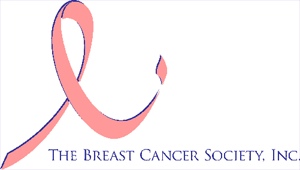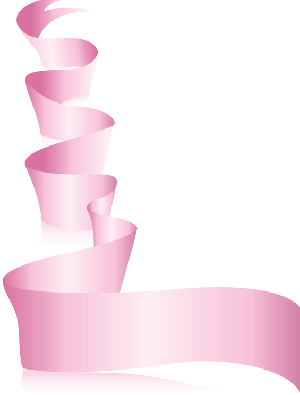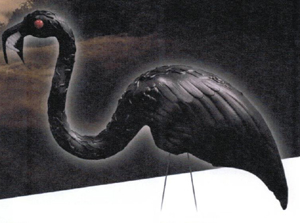The good people at
sexybloomers.com are this month doing their bit to promote Breast Cancer Awareness with their
Play on Pink promotion. This fall, customers can order
precut pink poplin covers for card tables.
Color fast and machine washable, these make an excellent playing surface while simultaneously providing a salvo in the war against breast cancer. A portion of proceeds will go towards research into and raising awareness of breast cancer – which is a very good thing, as the disease is surrounded in a fog of myth and misconception...
MYTH - Only women with a family history of the disease get breast cancer.
FACT – It is true that some types of breast cancer are much more likely to be influenced by genetic
variables. If you think that you may have these unlucky genes, you can get screened by your doctor, who will recommend a course of action if you are found to be genetically at risk. However, roughly 70% of women diagnosed with breast cancer have
no identifiable genetic risk factors. If a close relative has developed some certain types breast cancer, your own risk level roughly doubles, but it does not follow that you can be complacent if there is no family history of breast cancer. There is no need to panic, though. As long as you check yourself or get a doctor to check you regularly, you will set your mind at ease and catch anything abnormal early. If diagnosed early, breast cancer is not nearly so dangerous, and much simpler to successfully deal
with than the disease in later stages.
MYTH - Wearing an underwired bra increases your risk of breast cancer
FACT – This is a long running and popular myth, dating back to the nineties. The theory is that the wire of your bra will act as a block to your breast's lymphatic drainage, meaning that cancer-causing toxins will build up. However, there is no evidence to support this theory, and
medical oncologists dismiss it as a myth. So don’t burn your bras just yet!
MYTH - Women with bigger breasts are at higher risk of cancer
FACT – The risk of breast cancer does not increase or decrease with the size of your breasts. After all, even
men can get breast cancer. This myth may stem from the fact that, without
regular checking, lumps in larger breasts tend to go undetected for longer than in smaller ones, meaning that some women with larger breasts do not find cancerous lumps until the disease is more developed. However, regular and practiced checking will eliminate that risk for even the largest bust. On the other hand, smaller busted women should not get complacent – check, check, check, and ask your doctor if you think there’s anything abnormal.
MYTH - There’s nothing you can do to lower your risk of breast cancer
FACT – There’s a lot you can do to lower your risk of breast cancer. Losing weight if you are obese, and taking regular physical exercise
makes a huge difference to your cancer risk, as does cutting down on alcohol. If you’re really worried, you could, like Angelina Jolie, have a
prophylactic mastectomy, which should cut your breast cancer risk by up to 90%. If this seems extreme to you, something as simple as living a healthier lifestyle can significantly lower your risk factors and, in the event that you do contract breast cancer, being educated about the signs and checking your breasts regularly will massively increase your chances of catching the disease early, when it is more treatable.
MYTH - Breast cancer always means getting a mastectomy
FACT – If it is an option, many breast cancer patients have a lumpectomy, which involves removing only the affected part of the breast rather than the entire breast. Survival rates are roughly the same between women who have lumpectomies and women who have mastectomies, so you don’t have to worry about reducing your chances if you choose to keep your breast. There are some cases, however, in which a mastectomy may be the best option, so listen to your doctor’s advice if you are ever in that situation.
MYTH - Contraception causes breast cancer
FACT – There is a theory doing the rounds that the hormones contained within fertility and contraceptive drugs may increase the risk of cancer. However, the supporting evidence for a significant increase in breast cancer risk for those taking these medicines is tenuous at best. Women on contraceptive pills should not put their physical and mental wellbeing at risk by abandoning them for the sake of a largely unfounded theory – especially as, in many cases, the cancer risk has been wildly exaggerated by those who wish to see the demise of female contraception for political rather than medical reasons. The morning after pill has come under particular fire, but there is absolutely no evidence that using it in emergencies carries any subsequent increase in breast cancer at all. Indeed, some evidence suggests that contraceptive medicines may actually decrease breast cancer risk, and they almost certainly lower the risk for childless women of getting ovarian and uterine cancers. It has even been suggested that
nuns take contraceptive medicines, purely for their cancer-busting benefits.
MYTH - Breast cancer is preventable
FACT – While there is a lot you can do to lower your risk of breast cancer, there is nothing you can do to prevent it outright. The best thing you can do is to learn the
signs and symptoms of breast cancer, and
check your breasts regularly. If caught early, breast cancer can be eminently
survivable.
Clearly breast cancer is a seriously misunderstood disease. As early detection is key in beating the disease, teaching people the signs and symptoms they should be checking for, and helping them to learn effective self-screening methods could drastically reduce the rate of breast cancer deaths. Nothing could be a greater boon in the ongoing battle against cancer than raised awareness of the truths of the disease, and a dispelling of the myths surrounding it. So, to raise awareness, beat cancer, and at the same time have fun with your friends - buy a card table cover, and Play on Pink this fall!


 OUR RETAIL STORE - NASCAR / RACING! OUR BUSINESS OFFICE - WEBSITE INFO
OUR RETAIL STORE - NASCAR / RACING! OUR BUSINESS OFFICE - WEBSITE INFO
















 Welcome! Sign in! Say Hi!
Welcome! Sign in! Say Hi!